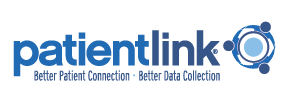“We see patient-centered care as the patient is in the center, fully alert, fully informed, and fully able to contribute to the information as well as what [treatment] they want to happen in their lives.” Debi Willis is a kidney cancer survivor and the CEO and Founder of PatientLink and MyLinks. The phrase “patient-centered care” is frequently mentioned, but what do these words really mean? According to Debi, patient-centered care is sometimes mistakenly interpreted as having multiple medical professionals focusing on a single patient where the patient has little understanding nor input in decisions that are made. Instead, “patient-centered care” should involve the patient in all decision making and ensure that the patient understands all decisions that are made throughout the care process.
In the early 90s, Debi worked at the Federal Reserve Bank of Kansas City as a software engineer. She noticed that the financial sector was highly automated, but the healthcare industry was almost completely reliant on manual entry of data. Medical providers who switched to using EHR (Electronic Health Record) systems found them tedious and difficult to use. To explore the new field, Debi switched from the banking technology industry to medical technology and created software that would allow patients to easily send their information into their physician’s medical record as structured data. This allowed the physician to focus on their patient instead of typing into the EHR. Although it wasn’t in her initial plans, the demand for her technology from medical providers led her to launch PatientLink.
In 2011, Debi was diagnosed with kidney cancer. After years of not feeling well and being told by multiple doctors that she was fine, Debi felt as though her medical providers had given up on her. Finally, a nurse practitioner decided to do a sonogram and found out that Debi had kidney cancer. Immediately following her diagnosis, Debi had many thoughts running through her mind: solemn thoughts, “I want to know—am I going to die?” but also, more productive thoughts, “I wanted to understand what research experts are finding around kidney cancer and other cancers that have impacted my family.” Debi had hundreds of questions for doctors, patients, survivors, and researchers, but no way to get the answers she wanted. According to Debi, many who are diagnosed with cancer appreciate each day that they live more than they did before their diagnosis. Debi’s family had a history of cancer with her sister and two uncles passing away from brain cancer, and Debi began to think, “I was given these days; what is it that I need to accomplish?”.
Debi’s diagnosis and her family’s experience with cancer led her to change the way she viewed EHR data collection and sharing. For twelve years, PatientLink took data reported by the patient and put it into the EHR, to be viewed by providers. This helped providers better understand the patient’s condition. Debi wanted to create software to allow patients to gather their data from their physicians and have it available for their own use, allowing patients to better understand their conditions and make decisions based on all the information. MyLinks was created to make the sharing of data bi-directional; instead of only going from patient to provider, patients and providers could share data both ways. Also, MyLinks assists in making sure that the information from different providers is in one place, controlled by each patient, and conforms to FHIR standards. Debi also wanted to have an easy platform for patients to find and enroll in clinical trials. Clinical trial matching, enrollment, and data sharing is an important part of MyLinks. Now that patients have all their data, they are empowered to use their data to improve and prolong their lives.
Author: Omkar Ratnaparkhi
Omkar Ratnaparkhi is a rising senior at Fordham University and is sharing patient stories to highlight firsthand accounts of the cancer patient experience.






